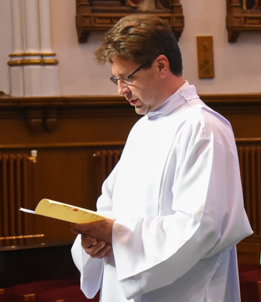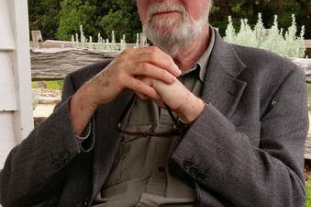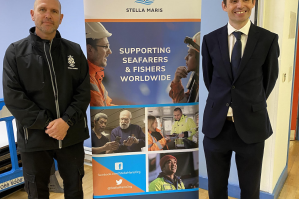Viewpoint: A Scottish-Dutch Deacon and Brexit

Ordination Day
More than thirty years ago, a seventeen-year old version of me came to Scotland. I carried very little: being Dutch I had a bike, I had a radio (I still have it), a couple of books and a few pounds. That was it. I went to college, I went to university, I have been self-employed, and I have worked for others. I paid my taxes, married a local girl, had two children. In those thirty years, I have never been ill, have never claimed a single benefit other than what my children receive and have worked with some of the most vulnerable people in our society.
Occasionally folk in Scotland with sharp ears pick up an odd sound in my English and think I am South African; more usually people cannot even hear I was not born here.
For almost thirty years I have always been welcome and had but one encounter with someone who did not like my presence in this country. Good going. I feel very much at home here in Scotland. My Catholicism has helped. There is a strong Catholic community and it is easy to adopt its totems: Celtic and Hibs football clubs, Catholic schooling for my children, going to Bellahouston Park when Benedict XVI visited, being called a 'Tim' and avoiding Orange Order marches. I belonged to one of Scotland's tribes and that was that.
Being ordained a Permanent Deacon for the Diocese of Dunkeld a few years ago and working as a prison chaplain cemented this multiple identity. I was Dutch-born, an adopted Scot and a cradle Catholic in Holy Orders, at the service of the wider community. And then came Brexit. It was not a surprise to me: working with the marginalised and the deprived made me aware of the discontent, much of it valid. With my academic hat on as a historian, I knew about the disconnect many in Britain, and particularly in England, felt with Europe. It was not a surprise, and, early in, I was not that bothered. I did not quite realise that this had the potential to change everything.
It has changed everything. To begin with, it has created a country at war with itself. This is tragic. I mourn the demise of polite discourse, the toleration extended to those who think differently, I mourn the demise of what made Britain, politically, Britain. That was a shock, as the aftermath of Scotland's independence referendum had been marked by political civility. Then there was the sense of rupture within the Catholic community. In Scotland, this has not been that noticeable. But south of the border, unity amongst Catholics is far gone. Some of the leading Brexiteers, like Jacob Rees Mogg, are loyal Catholics. So are some of the leading Remainers. The division is so deep that civility is gone. Political differences of opinion are great - political hatred is not.
On a more personal level, I have a sense of loss, too. I am one of the Prime Minister's 'queue jumpers' as opposed to someone who came here because he loved the country, and was fully in his right to do so. The difference is huge. I appreciated the huge backlash against the remark, and I appreciated Mrs May's subsequent apology, but I am still a queue jumper in the eyes of many. That hurts.
However, the worst part of the whole Brexit debacle has nothing to do with me. It concerns those on the margins, those struggling to survive from day to day. Their story has vanished behind the smoke of Brexit. The huge increase in the number of homeless, the rise of the foodbanks, the decline of a middle class, the burgeoning prison population, the obscene rise of childhood poverty, people working three jobs and still not managing - for many our beautiful and potentially ever so rich country has become a Dickensian dystopia.
I would have welcomed Brexit if it had addressed these issues. I would have put up with the occasional bit of nastiness; people indulging in that sort of behaviour are, after all, a small minority. I would not have minded having to register to continue to live in a country where I have lived for all my adult life. Instead, everything has sunk under a wave of destructive introspection and nationalist chest thumping. We are left with the irony of identity politics that addresses nothing in particular and leaves almost the whole population disenchanted, feeling betrayed and robbed of their sense of self. There are not many Dutch-Scottish Deacons in this country (I may be the only one) but I cannot be the only one wondering, how on earth did we get to this?


















